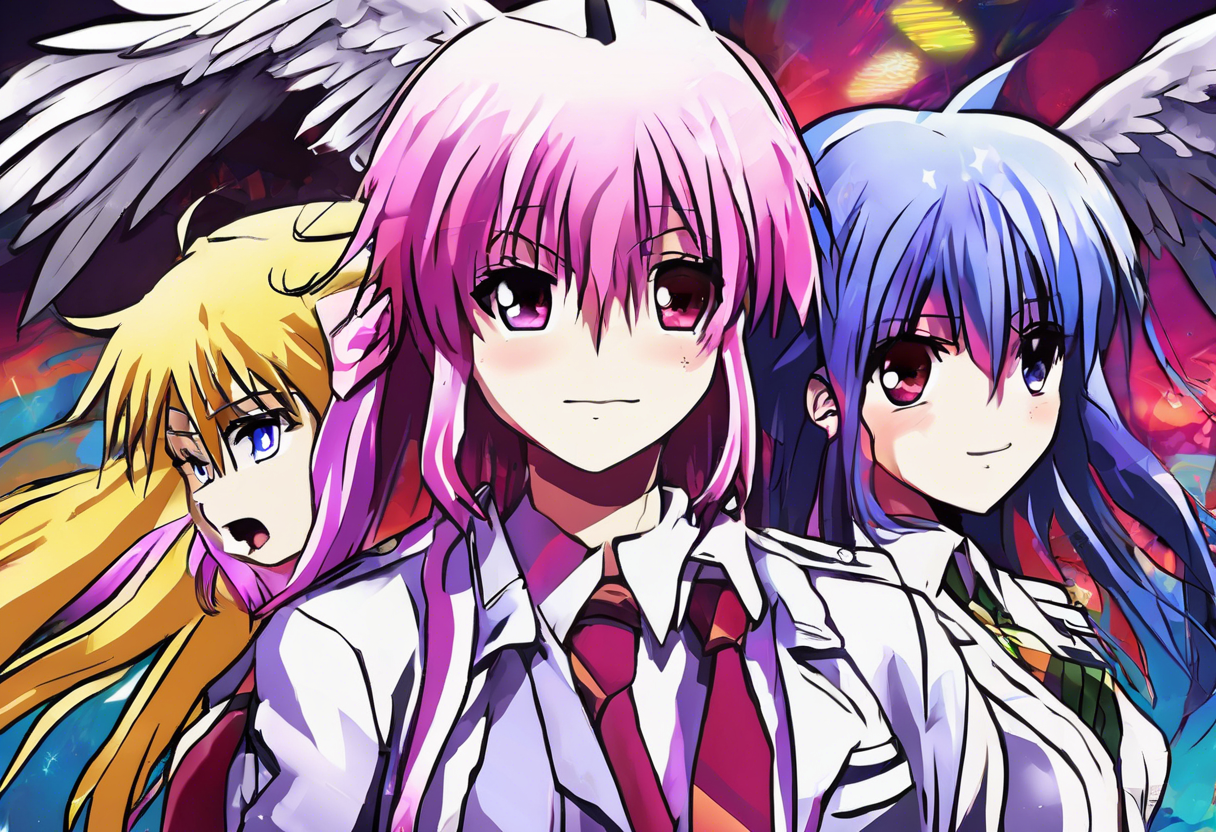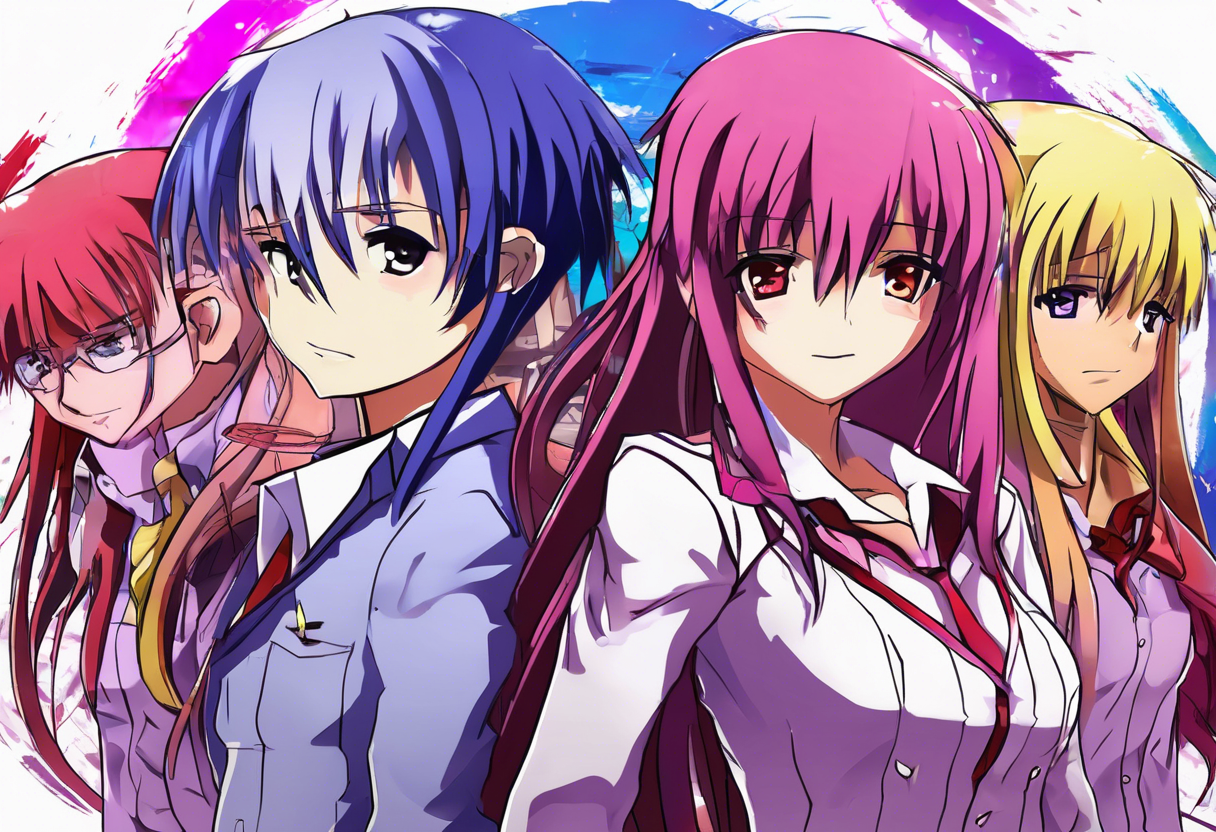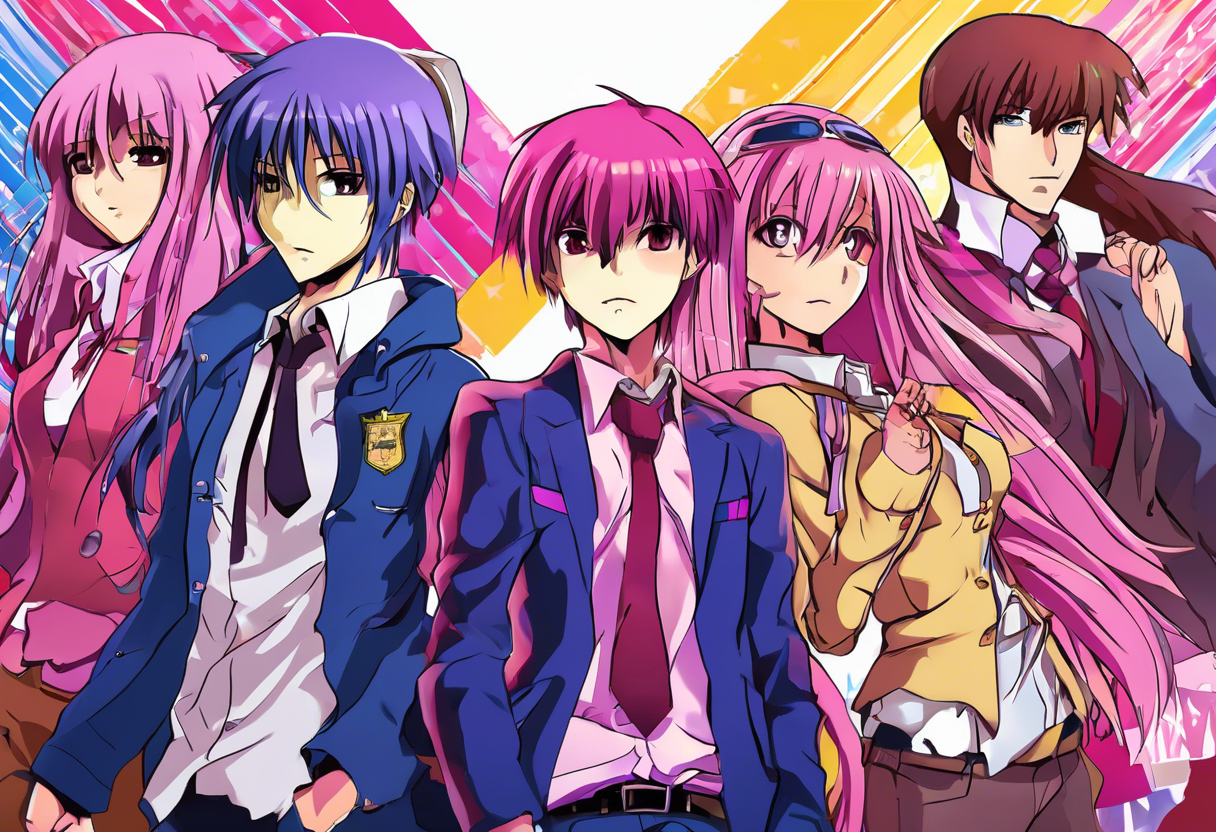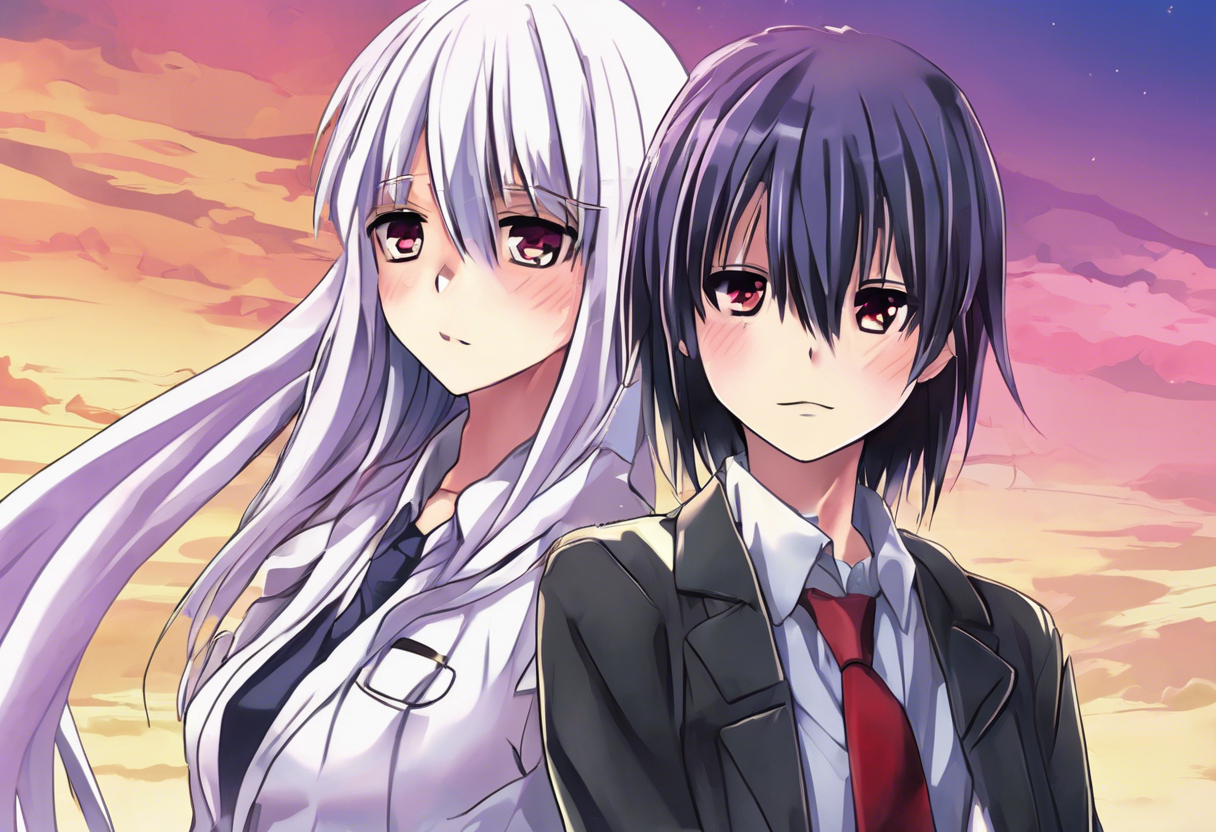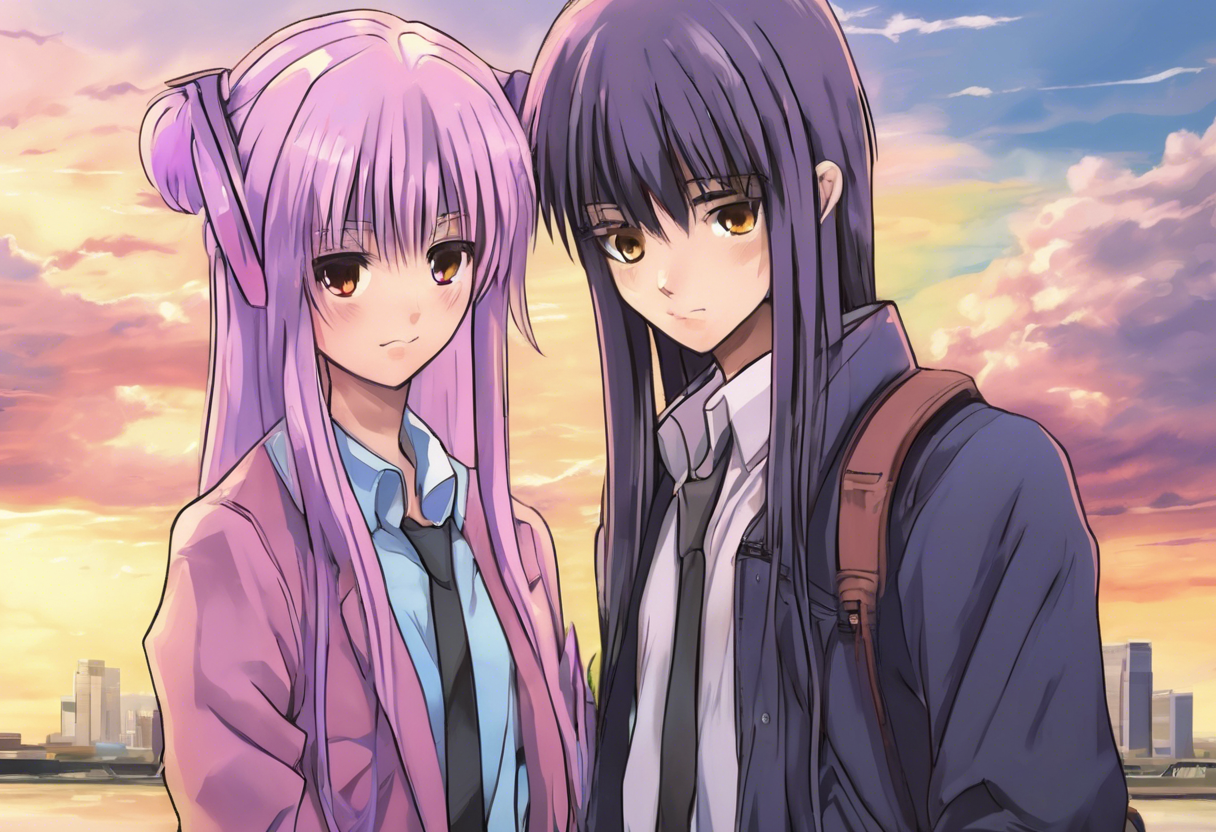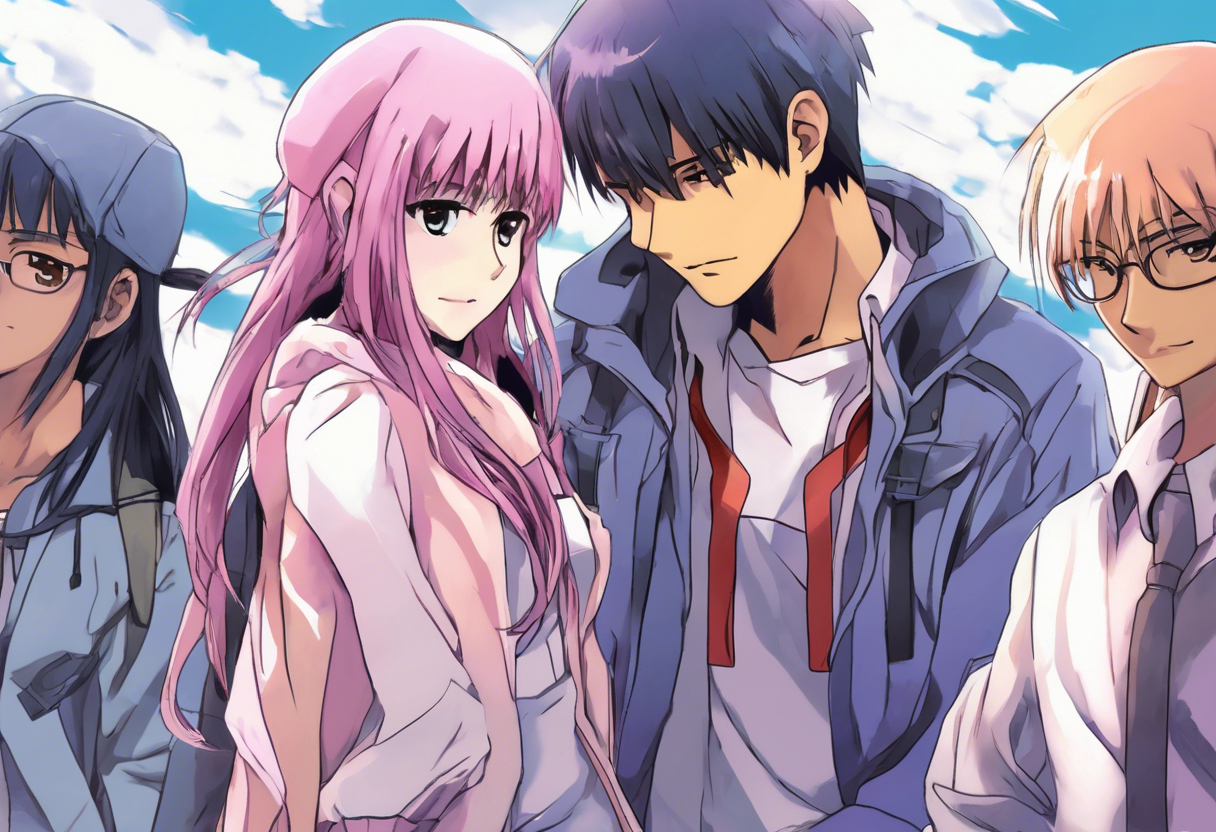Angel Beats! – Episode 11: Change the World is a pivotal installment within the 13-episode anime series Angel Beats!, directed by Seiji Kishi and written by Jun Maeda with production by Aniplex and P.A. Works. The episode originally aired in June 2010 as part of a series that blends elements of supernatural action, drama, and comedy within a unique afterlife school setting. Episode 11 stands out for its shift toward a darker, more intense narrative, focusing on the emergence of a new, existential threat—hostile shadows—that challenge the characters’ survival and the very nature of their existence in the afterlife. Crafted by a team recognized for their work in emotive storytelling and innovative fusion of music and narrative, this episode expands the series’ themes of redemption, loss, and hope with increased stakes and complex character dynamics, marking a significant turning point within the shojo-shonen hybrid genre it resides in[1][2][4].
Episode 11 unfolds with Otonashi, Naoi, and Hinata discussing their ongoing mission to help members of the Afterlife Battlefront pass on from the purgatorial world they inhabit. Their conversation, initially tension-filled due to underlying personal and ideological rivalries, is abruptly interrupted by a sudden and violent attack by mysterious shadow creatures—spectral threats that appear increasingly dangerous and unlike anything the group has faced before. The appearance of these shadows introduces a new level of peril that requires cooperation beyond their usual factional lines. The group soon calls upon Yuri and Kanade (Tenshi), leading to a high-stakes confrontation that tests their unity and resolve. Kanade reveals new modifications to her abilities, including sprouting wings that augment her combat potential, enabling her to deftly combat the shadow menace.
This battle with the shadows is intense, with Kanade dispatching many foes efficiently while the others struggle. The arrival of shadows turning former NPCs (non-player characters) into hostile entities escalates the chaos, underscoring the threat’s unnatural and corrupting influence. Yuri, grappling with her leadership role and holding the weight of prior judgments about Kanade, is forced to reevaluate her beliefs as the team faces the grim reality of annihilation rather than their previous fear of merely passing on. As the episode progresses, the team is forced to confront the shadows’ origin and motives, suspecting complications within the ‘AngelPlayer’ system that governs their world. The episode culminates in a critical meeting where characters debate and decide their course of action, symbolizing a thematic shift from mere survival to active resistance against an overwhelming foe[1][2][4].
Throughout the episode, character development is rich and multi-layered. Otonashi’s emerging leadership and evolving understanding of Kanade’s true nature deepen the emotional stakes, while Naoi’s uneasy alliance with Otonashi and Hinata reveals complex interpersonal tensions beneath their hardened exteriors. Yuri’s shifting stance—from skeptical and combative to conciliatory and strategic—reflects her internal growth and the series’ broader themes of forgiveness and collaboration. The setting of the afterlife school grounds serves as a surreal battleground where metaphysical concepts of death, memory, and moving on are made tangible through these conflicts, lending the narrative a poignant resonance. The episode’s narrative arcs intertwine as the group’s fight against shadows parallels their own struggles to come to terms with their past lives and unresolved regrets, making the conflict both external and deeply personal[2][3][4].
Themes of redemption, memory, and existential purpose permeate the episode, with the shadows symbolizing the threat of erasure and despair that counters the series’ usual focus on hope and salvation. The episode explores how the characters’ painful memories and regrets manifest in the afterlife, and how their determination to ‘change the world’ reflects a desire not just to escape their limbo, but to assert meaning over oblivion. Kanade’s modifications and symbolic wings evoke themes of angelic transformation and sacrifice, underscoring ideas of transcendence and renewal. The tension between fighting to preserve their current existence versus moving on echoes universal questions about life, death, and what lies beyond. The narrative uses the shadows as metaphors for inner darkness and the void, contrasting with the flickers of light and human connection embodied by the characters’ camaraderie and resilience. These symbolic elements enhance the emotional weight of the story and deepen audience engagement with the characters’ journeys[1][2][4].
Culturally, Episode 11 was significant for pushing Angel Beats! from a musically infused, episodic supernatural drama into a darker, action-oriented narrative crescendo. The episode was well-received for raising stakes and expanding the world-building, sparking considerable discussion among fans and critics about its sudden tonal shift and narrative complexity. It influenced popular culture by contributing to the anime’s reputation as a cult classic that blends melodrama, high-energy action, and emotional depth. Its depictions of posthumous struggle and redemption resonated with viewers, inspiring fan art, vocal cover renditions of original songs, and cross-media adaptations, such as light novels and manga expansions that explore events parallel to and beyond the episode’s timeline. References to the shadow creatures and pivotal character moments from Episode 11 have appeared in various anime forums and fan compilations, reinforcing its ongoing popularity and cultural footprint[1][2][3].
Critically, Episode 11 garnered a mixed but generally positive reception. Reviewers praised the episode for successfully heightening tension and providing a dramatic climax to the series’ overarching narrative. The dynamic action sequences, sophisticated character interactions, and the introduction of existential threats were highlighted as major strengths. However, some critics also pointed to inconsistencies—particularly regarding technical aspects of plot devices like the AngelPlayer system—and questioned the believability of certain character decisions, noting moments where pacing and exposition felt rushed or contrived. Audience debates emerged over the episode’s tonal shift compared to earlier installments, with some viewers divided on whether the darker themes enriched or disrupted the series’ balance. Nevertheless, the episode’s ambition and emotional impact have cemented it as a memorable and influential chapter within Angel Beats![2][3][4].
In legacy, Episode 11 of Angel Beats! remains a defining moment for the series and for its fans. It has inspired creators within the anime industry to explore more daring tonal shifts and blend genres with nuanced emotional storytelling. The episode’s themes of fighting existential threats within a liminal afterlife space continue to be referenced in subsequent anime works exploring death, memory, and identity. For audiences, the episode serves as a powerful culmination of narrative and thematic arcs that encapsulate Angel Beats!’ core message about embracing change, confronting inner shadows, and striving to shape one’s destiny, even beyond death. As part of the series’ short but impactful run, Episode 11 contributes enduringly to anime history as a work that pushes boundaries in storytelling, emotional resonance, and hybrid genre execution[1][2][4].
References
- https://anime.astronerdboy.com/2010/06/angel-beats-11.html
- https://antiotaku.wordpress.com/2010/06/17/angel-beats-episode-11-%E2%80%93-a-shadow-of-its-former-self/
- http://thestuffstoreofstuff.blogspot.com/2015/11/short-series-angel-beats-ep-11-change.html
- https://xenodude.com/2020/06/12/angel-beats-ep-11/
- https://angelbeats.fandom.com/wiki/Change_the_World

